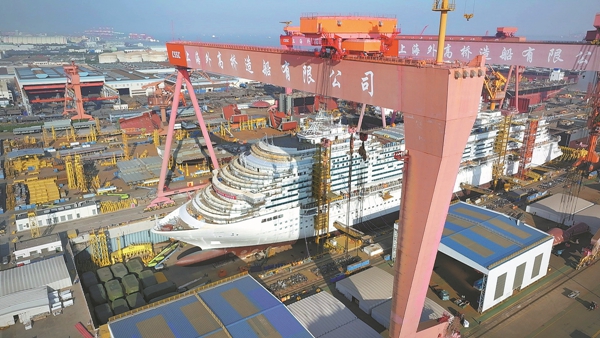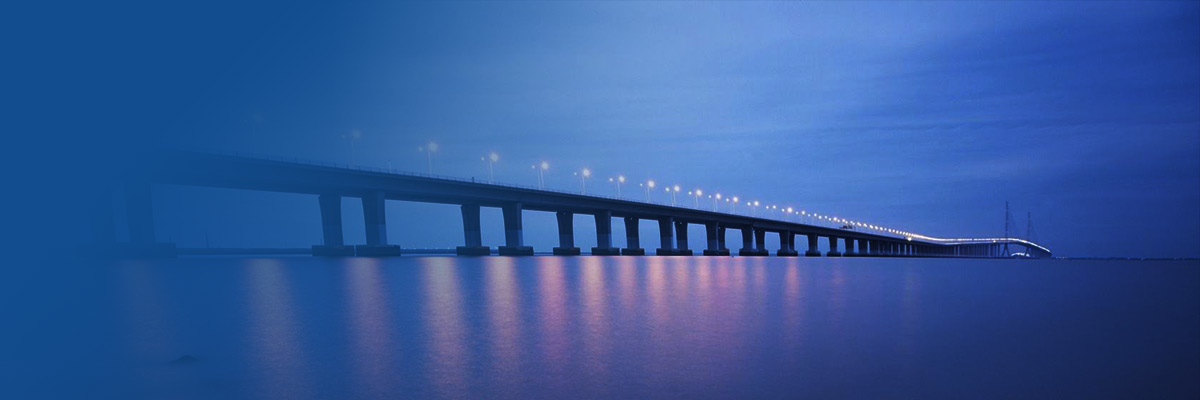Shanghai striving to develop cruise cluster

A cruise ship is under construction in Shanghai's Waigaoqiao area. [Photo/Xinhua]
A detailed development plan and a set of 20 supportive policies were released on Wednesday to facilitate the expansion of the sea cruise industry in Shanghai's Waigaoqiao area amid the city's efforts to advance high-quality development of the manufacturing sector.
By 2025, a world-class comprehensive cruise production and assembly base should be initially shaped in Waigaoqiao in Shanghai's Pudong New Area, said the industry development plan. The base should be able to explore the cruise market all over China and even across the Asia-Pacific region so it can forge a globally influential cruise industry cluster, the plan stated.
Waigaoqiao should feature a globally significant cruise industry cluster with an accompanying complete supportive system, high-end manufacturing and various consumption resources by 2035, it said.
A total of 20 policies were released on Wednesday to achieve the above goals. Qualified high-tech cruise companies or research institutions will be granted between 250,000 yuan ($36,520) and 5 million yuan in one-time subsidies by the local government. A maximum 20 million yuan in bonuses will be provided to qualified cruise technology renovation projects upon completion. Equipment subsidies and tax exemptions from technology transfers are included in the newly released policies.
Li Hui, head of the Pudong Technology and Economic Committee, said that the plan and supportive policies are aimed at building an advanced cruise manufacturing industry in Waigaoqiao, which combines production, assembly, maintenance, design and research.
A total of 20 cruise projects were launched in Waigaoqiao via a signing ceremony on Wednesday, covering manufacturing, interior design, production and other segments throughout the cruise industry chain. Shanghai-based marine service provider RMS Group, Changzhou-based manufacturing conglomerate KTK Holding and Japan's Endo Lighting Corp signed cooperation agreements on Wednesday.
Huang Fuyu, CEO of RMS Group, said updating existing marine service standards by referring to internationally accepted ones is one way to facilitate high-quality development of the cruise industry — not only in Shanghai but nationwide.
Wang Yanguo, vice-general manager of CSSC Cruise Technology Development Co Ltd, explained that about 80 percent of the cruise production sector in Europe has been localized. The complete cruise supply chain in Europe, which integrates talent training, technology innovation and production, has helped to realize the high rate of localization. This can be an important example for Waigaoqiao to emulate, Wang said.
The first China-made large cruise ship, which is designed and manufactured by China State Shipbuilding Corp Ltd, is scheduled to begin trial sailings from Pudong in July.
While high-end manufacturing has been an important driver of high-quality economic growth in Pudong, the cruise industry should become a key growth engine for the overall manufacturing industry in Pudong by creating a complete industrial chain featuring technological breakthroughs and state-of-the-art management systems, said Hang Yingwei, government head of Pudong New Area. In this way, traditional industries can also be upgraded and complete their restructuring, he said.
According to the Ministry of Transport, about 14 million Chinese vacationers will take cruise trips annually by 2035. This will drive more than 1 trillion yuan in investment, including the construction of at least 100 cruise ships. The annual cruise industry value will exceed 400 billion yuan by that time, creating more than 1.5 million jobs.


 China's public holidays for 2025
China's public holidays for 2025  Shanghai FTZ: Go all out to build China's first pilot zone for Silk Road E-commerce cooperation
Shanghai FTZ: Go all out to build China's first pilot zone for Silk Road E-commerce cooperation  Favorable policies boost 'China Travel' trend
Favorable policies boost 'China Travel' trend  play
play 